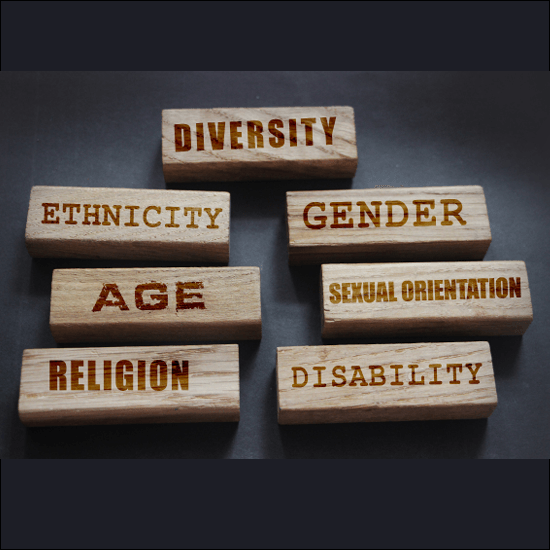Discrimination, Harassment, and Retaliation

CSUB takes allegations of discrimination very seriously. Complaints alleging discrimination, harassment, and retaliation will be addressed in a timely and appropriate manner. If the complaints have merit, CSUB will promptly take actions to prevent recurrence and remedy the effects of the discrimination, harassment, or retaliation.
Interim CSU Nondiscrimination Policy
Read the full Interim CSU Nondiscrimination Policy.
Prohibited Conduct
The Nondiscrimination Policy prohibits Discrimination, Harassment, Sex-based Harassment, Sexual Misconduct, Sexual Harassment, Sexual Exploitation, Dating Violence, Domestic Violence, Stalking, Prohibited Consensual Relationships, and Retaliation.
Reporting
Reporting An Incident
This report does not automatically initiate a Title IX Investigation. It provides you with an opportunity to inform the Title IX/DHR Coordinator of your experience and to receive support and information about your options.Filing a report serves as official notice to the University and authorizes Title IX key personnel to initiate a preliminary inquiry into the information and allegations contained within the report.
Students, staff, faculty, or third parties wishing to file a report can use this form.
Contact

Associate Vice President for Civil Rights and ComplianceDHR Administrator
Email: awilliams122@csub.edu
Assistant Director for Civil Rights and ComplianceDeputy DHR Administrator
Email: jvillatoro8@csub.eduRole of the DHR Administrator
The DHR Administrator investigates complaints of discrimination, harassment, and retaliation. To file a complaint or if you have any questions/concerns please contact the DHR Administrator.
Definitions
- Different Treatment Discrimination: Different Treatment Discrimination occurs when the Complainant is: 1) treated less
favorably; 2) than other similarly situated individuals under similar circumstances;
3) because of the Complainant’s actual or perceived Protected Status; and 4) not for
a legitimate, nondiscriminatory reason. Insignificant or trivial actions or conduct
not reasonably likely to do more than anger or upset a Complainant do not constitute
“Different Treatment Discrimination.”
- Under this Nondiscrimination Policy, discrimination in employment includes any adverse employment action or conduct that is reasonably likely to impair the Employee's job performance or prospects for advancement or promotion.
- An allegation that an Employee is receiving unequal pay because of their Protected Status (for example, under the California Equal Pay Act) constitutes a Discrimination Complaint under this Nondiscrimination Policy.
Harassment may occur when:
-
Submitting to, or rejecting, the verbal, nonverbal or physical conduct is explicitly or implicitly a basis for:
- Any decision affecting a term or condition of the Complainant's employment; or
- Any decision affecting a Complainant's academic status or progress, or access to benefits
and services, honors, programs, or activities available at or through the University.
OR
-
The conduct is sufficiently severe or pervasive so that its effect, whether intended or not, could be considered by a reasonable person under similar circumstances and with similar identities, and is in fact considered by the Complainant, as creating an intimidating, hostile, or offensive work or educational environment that denies or substantially limits an individual's ability to participate in or benefit from employment and/or educational, services, activities, or other privileges provided by the CSU.Whether a hostile environment has been created is a fact-specific inquiry that includes consideration of the following:
-
The frequency, nature, and duration of the conduct;
-
Whether the conduct was physically threatening;
-
Whether the conduct arose in the context of other discriminatory conduct or other misconduct;
-
The degree to which the conduct affected the Complainant’s ability to access the CSU’s educational programs, activities or employment;
-
The Parties’ ages, roles within the CSU’s educational programs or activities, previous interactions, and other factors about each Party that may be relevant to evaluating the effects of the conduct; and
-
Other Harassment in the CSU’s educational programs, activities, or employment.
-
- Reporting or filing a Complaint;
- Participating or refusing to participate in any manner in any Policy-related investigation or proceeding, including a hearing;
- Opposing conduct which was reasonably and in good faith believed to be in violation of this Nondiscrimination Policy;
- Assisting or participating in an investigation or proceeding under this Nondiscrimination Policy, regardless of whether the Complaint was substantiated; or
- Assisting someone else in reporting or opposing a violation of this Nondiscrimination Policy or assisting someone else in reporting or opposing Retaliation under this Nondiscrimination Policy.
-
- For purposes of this definition, Retaliation includes conduct that would discourage a reasonable person from reporting or participating in a process provided for in this Policy, including threats, intimidation, coercion, reprisals, discrimination, and adverse employment or educational actions.
- Peer Retaliation, which is defined as Retaliation by one Student against another Student, is also prohibited.
- Retaliation may occur even when there is not a power or authority differential between the individuals involved.
- The exercise of rights protected under the First Amendment does not constitute Retaliation prohibited under this definition.
- Good faith actions lawfully pursued in response to a Complaint, such as gathering evidence, providing Supportive Measures, or disciplining Students or Employees found to be in violation of this Nondiscrimination Policy, without more, are not considered Retaliation.
Protected Status
Protected Status includes Age, Disability (physical or mental), Gender, Gender Identity (including Nonbinary or Transgender), Gender Expression, Genetic Information, Marital Status, Medical Condition, Nationality, Pregnancy or related conditions, Race or Ethnicity (including color, caste, or ancestry), Religion or Religious Creed, Sex (including Sex Stereotyping or Sex Characteristics), Sexual Orientation, and Veteran or Military Status.
Age is a Protected Status.
-
- Having a physical or mental condition that limits a major life activity. "Limits" means making the achievement of a major life activity difficult without regard to mitigating measures such as medications, assistive devices, prosthetics, or reasonable accommodations, unless the mitigating measure itself limits a major life activity. A "major life activity" is broadly construed and includes physical, mental, and social activities (such as walking, talking, seeing, hearing, thinking) and working; or
- Having a known history of a qualifying impairment; or
- Being regarded or treated as having or having had a qualifying impairment; or
- Being regarded or treated as having or having had such an impairment that has no presently
disabling effects but may become a qualifying impairment in the future.
Disability includes both visible and invisible disabilities, temporary or permanent disabilities, and disabilities that are apparent at birth or develop later in life. Disability includes HIV and AIDS.
Disability is a Protected Status.
Gender Identity refers to a person’s innate, deeply felt psychological identification of Gender, which may or may not correspond to the person’s sex assigned at birth (the sex originally listed on a person’s birth certificate).
Nonbinary is a Gender Identity which falls outside of the Gender binary, meaning an individual does not identify as strictly male or female. A nonbinary person can identify as both or neither male and female, or sometimes one or the other. There are several other terms used to describe Gender Identities outside of the male and female binary such as genderqueer, gender non-conforming, agender, and bigender. Though these terms have slightly different meanings, they refer to an experience of Gender outside of the binary.
Transgender (sometimes shortened to Trans or TG) people are those whose Gender Identity differs from the sex they were assigned at birth. A Transgender person may or may not medically transition and may identify as male, female, nonbinary, or another Gender.
Gender Expression refers to external characteristics and behaviors that are socially defined as either masculine or feminine, such as dress, grooming, mannerisms, speech patterns, and social interactions. Social or cultural norms can vary widely and some characteristics that may be accepted as masculine, feminine, or neutral in one culture may not be assessed similarly in another.
Gender is a Protected Status.
-
- The person's genetic tests.
- The genetic tests of the person's family members.
- The manifestation of a disease or disorder in the person's family members.
- Any request for, or receipt of genetic services, or participation in clinical research
that includes genetic services, by a person or any person's family member.
Genetic Information does not include information about the sex or age of any person.
Genetic Information is a Protected Status
Marital Status is a Protected Status.
-
- Any health impairment related to or associated with a diagnosis of cancer or a record or history of cancer; or
- Genetic characteristics. For purposes of this section, "genetic characteristics" means
either of the following:
- Any scientifically or medically identifiable gene or chromosome, or combination or alteration thereof, that is known to be a cause of a disease or disorder in a person or offspring, or that is determined to be associated with a statistically increased risk of development of a disease or disorder, and that is presently not associated with any symptoms of any disease or disorder; or
- Inherited characteristics that may derive from the individual or family member, that are known to be a cause of a disease or disorder in a person or offspring, or that are determined to be associated with a statistically increased risk of development of a disease or disorder, and that are presently not associated with any symptoms of any disease or disorder. Medical Condition is a Protected Status.
Nationality is a Protected Status.
-
- Pregnancy, childbirth, termination of pregnancy, or lactation;
- Medical conditions related to pregnancy, childbirth, termination of pregnancy, or lactation; or
- Recovery from pregnancy, childbirth, termination of pregnancy, lactation, or related
medical conditions.
Pregnancy is a Protected Status.
Race or Ethnicity is a Protected Status.
Religion or Religious Creed is a Protected Status.
Sex Characteristics refer to the outward and inward biological traits and attributes that are typically associated with being male, female, or intersex. These characteristics are determined by a combination of genetic, hormonal, and anatomical factors, such as reproductive or sexual functions.
Sex Stereotype means an assumption about a person's appearance or behavior or about an individual's ability or inability to perform certain kinds of work based on a myth, social expectation, or generalization about the individual's sex.
Sex is a Protected Status.
Sexual Orientation is a Protected Status.
Veteran or Military Status is a Protected Status.